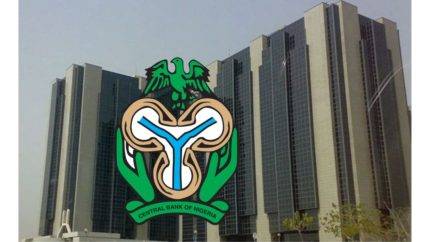The Central Bank of Nigeria (CBN) has imposed a substantial fine totaling N1.35 billion on nine Deposit Money Banks (DMBs) for failing to maintain adequate cash availability at Automated Teller Machines (ATMs). This action follows inspections that uncovered violations of cash distribution regulations during the festive season, a time when the demand for cash traditionally peaks. Each of the affected banks was fined N150 million for non-compliance, reflecting the CBN’s commitment to enforcing financial discipline.
The banks penalized include prominent institutions such as Fidelity Bank Plc, First Bank Plc, Keystone Bank Plc, Union Bank Plc, Globus Bank Plc, Providus Bank Plc, Zenith Bank Plc, United Bank for Africa Plc, and Sterling Bank Plc. To ensure swift compliance, the fines are being deducted directly from the banks’ accounts maintained with the CBN. This move underscores the regulator’s resolve to uphold cash flow stability and enhance consumer trust in Nigeria’s financial system.
CBN Reaffirms Commitment to Cash Flow Stability with Regulatory Sanctions
Mrs. Hakama Sidi Ali, the Acting Director of Corporate Communications at the Central Bank of Nigeria (CBN), has reiterated the regulator’s dedication to ensuring seamless cash availability across the banking sector. In a recent press statement, she highlighted that the hefty fines imposed on nine Deposit Money Banks serve as a strong warning against non-compliance with the CBN’s cash distribution guidelines. According to her, the enforcement underscores the central bank’s zero-tolerance policy for disruptions that hinder access to cash, particularly during peak demand periods.
Mrs. Ali emphasized that this decisive action reflects the CBN’s broader mandate to maintain financial stability and bolster public confidence in Nigeria’s banking sector. She stated, “The Central Bank of Nigeria has taken deliberate steps to guarantee that Naira notes remain accessible through ATMs, especially during high-demand periods like the festive season.” This measure aligns with the institution’s overarching goal of fostering an efficient and customer-centric banking system.
Non-Compliance Sparks Regulatory Clampdown
The CBN’s inspections revealed that the nine sanctioned banks failed to adhere to prescribed cash loading schedules at ATMs, causing significant inconvenience to customers. These findings have raised concerns about the efficiency of Nigeria’s banking system, particularly during peak periods like the holiday season.
“The N150 million fine for each bank reflects the gravity of their non-compliance,” Mrs. Ali added. She reiterated that the CBN has a zero-tolerance policy for actions that disrupt financial services or impede access to cash by the public.
Implications for the Banking Sector
The fines have sparked debates on the operational challenges faced by banks in meeting cash distribution targets. Industry analysts argue that logistical issues, including cash transportation and security risks, may contribute to these lapses. However, the CBN maintains that banks must prioritize customer needs and adhere to regulatory standards.
This development is expected to prompt banks to reassess their cash management strategies. The penalties serve as a stark reminder of the consequences of non-compliance, with potential reputational damage for the affected institutions.
Public Reaction to Cash Shortages
The shortage of cash at ATMs during the holiday season triggered widespread frustration among Nigerians, with many expressing their displeasure on social media. Customers reported long queues, non-functional ATMs, and challenges in accessing basic banking services.
“The banks have failed us,” said a Lagos resident, who had to visit multiple ATMs to withdraw cash. Public outcry underscores the urgent need for banks to improve service delivery, especially during critical periods.
A Call for Greater Accountability
The CBN’s enforcement action has been widely regarded as a step in the right direction toward holding financial institutions accountable. Experts believe this will encourage banks to strengthen compliance measures and enhance cash availability across their networks.
Moving forward, the CBN is expected to intensify its monitoring efforts to ensure banks consistently meet their obligations. Mrs. Ali concluded by affirming the regulator’s resolve to protect the interests of Nigerian consumers and uphold the integrity of the banking sector.
Table of Contents
Discover more from OGM News NG
Subscribe to get the latest posts sent to your email.













